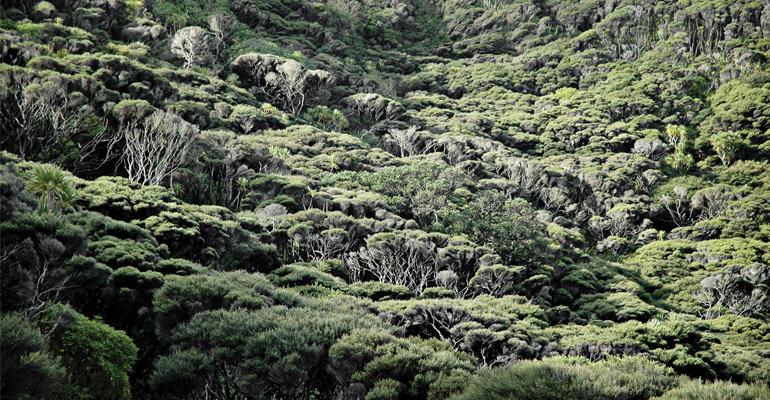July 18 2018
12pm-1pm
Location
Virtual hui | To participate via ZOOM, please register first by clicking the below link
DSC Seminar #8 | Climate-resilient Māori forestry and agriculture

Recent flooding on the East Coast has been a timely reminder about the threat of erosion, which is projected to worsen in our changing climate. In this seminar, researcher Shaun Awatere (Manaaki Whenua) will speak about his Vision Mātauranga project on economic modelling and native afforestation on the East Coast.
Māori within the Waiapu catchment on the East Coast have long-term interests in the land they own and manage. Māori are also heavily invested in primary industries. Projected climate change impacts put these interests at risk.
To help landowners reduce the risks of increased erosion under climate change, and to maximise their revenue, this project – which has only recently concluded – used kaupapa Māori, bio-physical and economic assessment tools to understand and evaluate different land-use decisions.
Alongside landowners, the project identified multiple land-use opportunities with a range of social, economic, environmental and cultural benefits. These included alternative forestry (mānuka, kānuka, tōtara, mataī, puriri, harakeke and kawakawa), horticulture (including honey, olives and olive oil, lemons and hemp) and other business options derived from mātauranga Māori.
Under all future climate change scenarios, research found that re-foresting the land – particularly with indigenous species – would result in a significant reduction of soil erosion for the Waiapu catchment. Significantly, afforestation would also help realise the core values and aspirations of Māori landowners, which include kaitiakitanga (sustainable resource management), manaakitanga (reciprocal obligations) and whakatipu rawa (growing the asset base).
The research presents recommendations for governance arrangements in Te Tairāwhiti, policy recommendations (including for the Ministry of Primary Industries and the Gisborne District Council), recommendations for Māori landowners, and recommendations for working with Māori to address climate issues.
This research project was a partnership between Manaaki Whenua Landcare Research, SCION and He Oranga mō ngā Uri Tuku Iho Trust.
About the presenter
Shaun Awatere (Ngāti Porou) is a resource economist for Manaaki Whenua Landcare Research in Hamilton. He has been working to improve the incorporation of Mātauranga Māori into local government planning by developing the systems and processes that will enable Māori values to be integrated into urban design and development.
Physical hubs:
Please note, all NIWA visitors must sign in on arrival.
- Manaaki Whenua Landcare Research, Hamilton*
- NIWA Hamilton: Reception Meeting Room
- NIWA Auckland: Seminar Room
- NIWA Lauder: Computer Room
- NIWA Christchurch: Hautere Room
- University of Otago: Room 229, Science III building
- University of Canterbury: Room 411, Law Building
- Massey University: Manawatū campus, Library Research Collaboration, Room Lib2.45
*Our speaker will be presenting from here
We encourage you to set up your own hub and bring friends and colleagues together to participate in the seminar. Please let us know if you do set up your own hub.
Email: [email protected]
ABOUT OUR PRESENTERS
Shaun Awatere
Shaun is a Senior Kairangahau with Manaaki Whenua Landcare Research, and a Theme Leader with Ngā Pae o te Māramatanga, New Zealand’s Māori Centre of Research Excellence.
Shaun’s work involves improving the incorporation of Māori values into economic decision-making for collective assets that will enable Māori organisations to make more kaupapa Māori attuned decisions. With an applied focus to his work, Shaun has been active supporting Māori manage collective assets in a more sustainable manner consistent with the kaupapa-Māori principles of kaitiekitanga, manaakitanga and whakatipu rawa. He is currently engaged in research and policy to help prepare iwi/hapū Māori for climate change mitigation and adaptation planning.